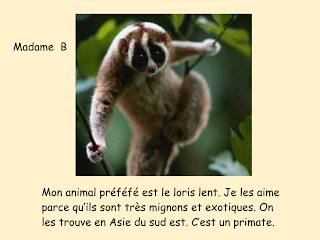Something really cool happened on Saturday: a full house of Language Teachers ready to learn, listen and network at UofA for the revived Auckland Langsem!
Aaron Nolan, newly elected NZALT President for the Auckland region supported by an enthusiastic Conference committee did make it happen and the classic conference programme was full of the Best Practice people. (
Programme here)
Prof Rod Ellis rocked the lecture theatre with
his 11 principles to start the day!). I have read some of his publications, watched many youtube clips taken from participants at his conferences, but it was the first time ever I listened to him live. Was worth it, made the principles come live and inspired me to think about the following: 6 years on, and Prof Ellis who was commissioned by the MoE for the NZC still presents on these principles on which rest
the Languages curriculum to Language teachers, and keeps it fairly fresh. I can feel another blog post
coming up soon (and will link here!) here!
The unavoidable focus on NCEA standards, with an example of bad texts and bad questions, presented by the NAF, drew in a crowd... Felt for the presenters scheduled on the same slot though.
Ass Prof Martin East presented on his research on the adoption of the "Interaction" standard after the "Conversation" standard has been abandoned. He has gathered teachers' voice ( a v. interesting concept which in itself would need a lot more attention paid to by education researchers, don't you think?) and in a nutshell, and I hope not to "interpret' too much, he found that while teachers agree that interaction is more authentic they are finding it very hard to manage to capture evidence of it in a meaningful setting and in practical way, thus are either not offering it or only as an option for their student. There is thus a tension between the pedagogy and way to assess the product of the learning. Would NZQA at any stage engage with language teachers, in the light of this research and Pr East's subsequent one, to discuss/review the interact standard? It got me thinking: interaction would maybe better to importantly underpin all that happens in/outside the language classroom (as suggested in the Principles) and evidence of progress could be captured, reflected upon by the learner and used for formative assessment by the teacher BUT could be summatively assessed for standard purposes in a different manner (see DELF, IELTS, IBac etc.)
Anyway it will be interesting to see what Pr East, now
President of the NZALT will use his research to leverage opportunities for conversation between practitioners and NZQA. I asked him if his findings had been published yet but no. This is Uni stuff with all the protocole, it ain't a blog post! :-)
So that takes me you know where: this format of Professional Learning does provide ideas and stimulation to participants but the rush from one session to another, the variety of input, and styles of presenters always leave the participant a little hazy eye by the end.
It would be interesting to see these formal settings at least provide an opportunity for participantsto share what they have gathered in their kete from the experience before they leave, to allow them to connect the dots between each presentation. Because they do exist of course, the connections, and they contribute to drawing the big picture!
 |
| Can you tell the space type I was in from this pic? |
An example of this was the invigorating conversation I had with Liz Scally over lunch. She saw a bit of my session where I go over what I have called
"Digital Citizen: 10 Desirable Competencies . We connected that the vocabulary used for these competences is quite similar to the one used to describe the Languages standards, and relate to
Learning.
These are just raw chunks of thoughts arising. I would need to refine all of this a great deal more, nothing better than a conversation around any of this would help me move my understanding forward!
Here is the ToolSprint presentation I gave. I love tools. That is if we start using them with the "Why?" !
 What you get out of sitting with Priscilla, while listening to Prof. Rod Ellis, is a big dollop of sharp humor, a great dose of a fast thinking mind and a fun and creative approach to concepts!
What you get out of sitting with Priscilla, while listening to Prof. Rod Ellis, is a big dollop of sharp humor, a great dose of a fast thinking mind and a fun and creative approach to concepts!

